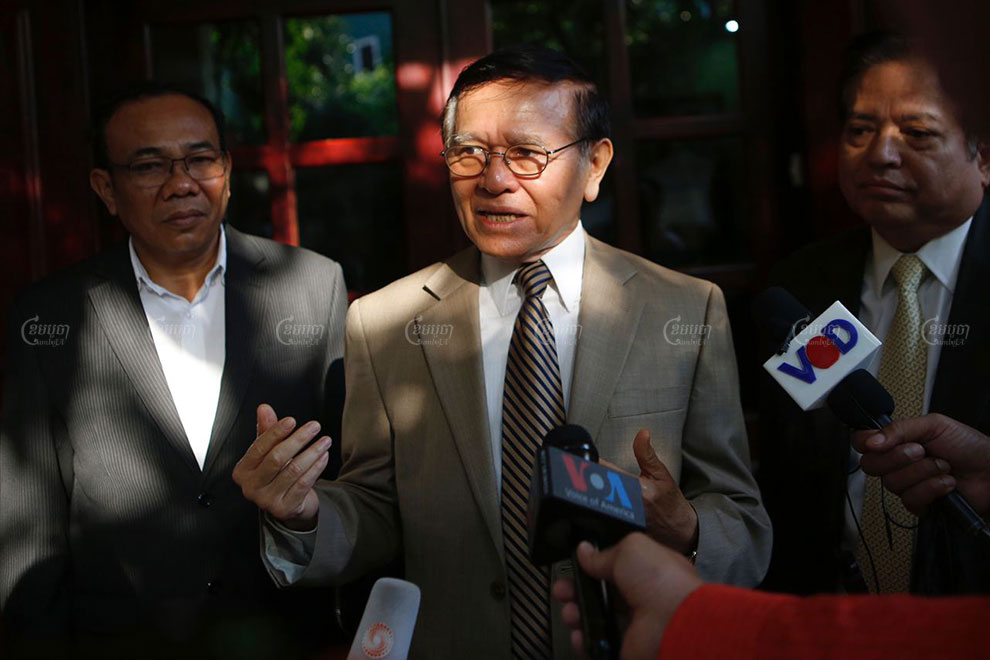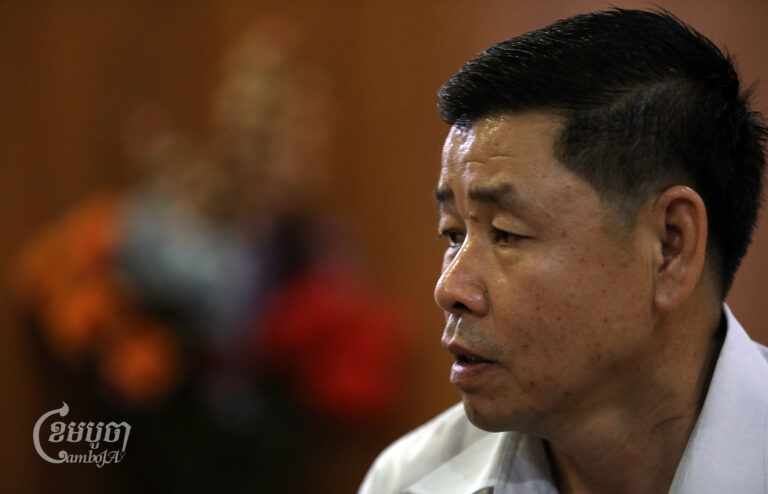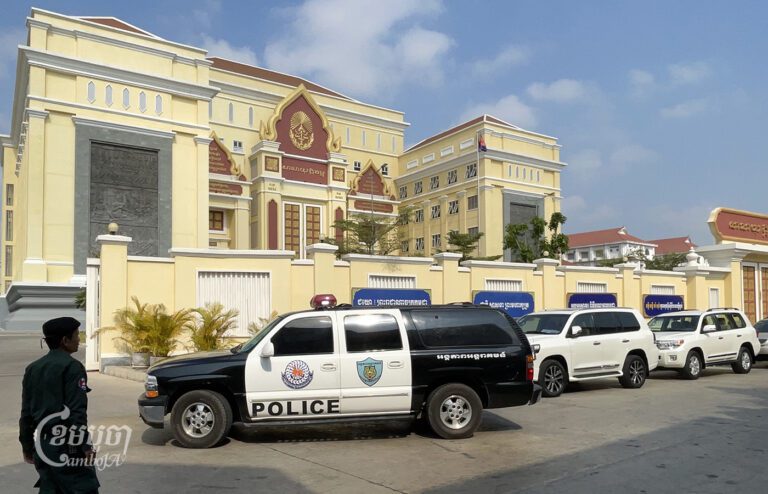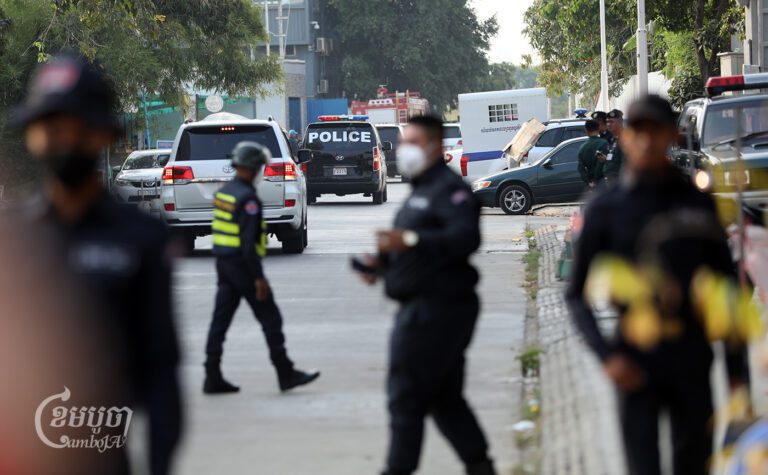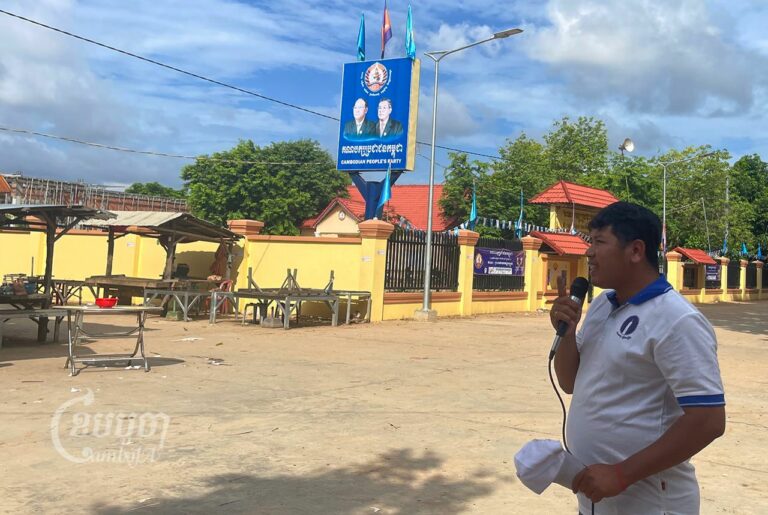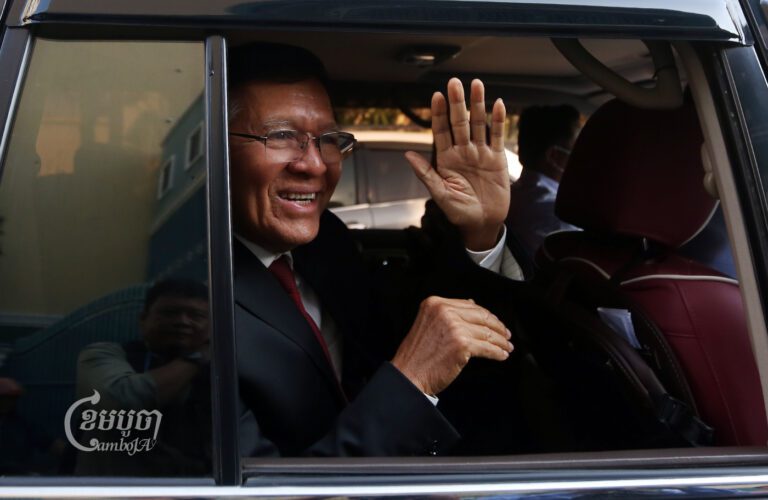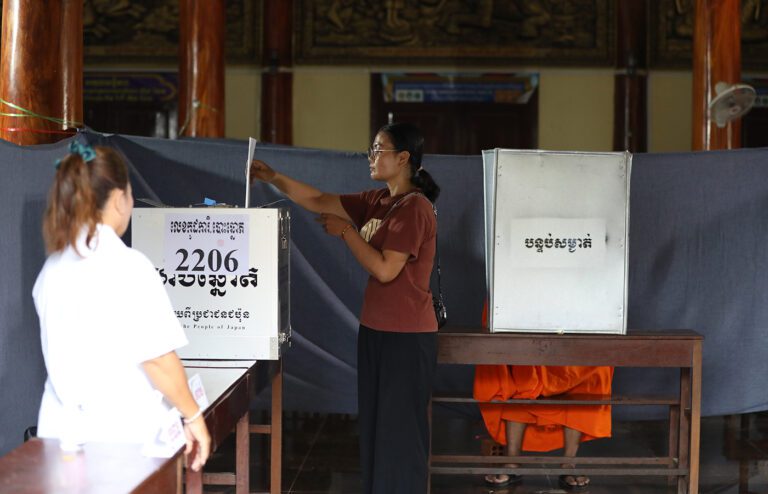Former opposition party leader Kem Sokha on September 2 took to social media to demand he be allowed to engage in politics and reiterated calls on the court to drop the treason charge against him, while three other ex-senior CNRP officials have also requested their political rights be restored.
Sokha, president of the main opposition CNRP — dissolved by Supreme Court order in 2017 — was arrested on September 3, 2017, and charged with conspiring with a foreign power for allegedly working with the US to overthrow the government, though Sokha has maintained that he has acted transparently to try to win the election. The trial is ongoing at the municipal court.
Former lawmaker Son Chhay and former party members Var Samon and Tav Kem Chhorn on August 27 sent a letter to Interior Minister Sar Kheng also seeking political rehabilitation. Nine CNRP members before them — Kong Korm, Kong Bora, Real Camarin, Chiv Kata, Kang Kimhak, Ou Chanrath, Chan Sela, Tep Sethi, and Sin Sovanny — have already been granted permission to engage in politics once again.
The 13 are among 118 senior CNRP officials who were banned by the court from participating in politics shortly after the dissolution of the CNRP in November 2017.
In a post on his Facebook page on September 2, Sokha said that following the initial hearings in his trial in January and February, the court had provided no evidence to demonstrate he had attempted to topple the government, so the charges should be dropped and his right to participate in political life reinstated accordingly. “Until now, it has been three years since I lost my fundamental freedoms, most importantly the right to engage in politics to serve the nation and Khmer people,” he said in the post.
“Based on the court’s trial, I have not seen enough inculpatory evidence for them to accuse me of what they have charged with,” Sokha said. “I clearly said that I have no intention to commit, have not committed, and do not support any activities that would negatively impact the interests of the nation and people,” he said.
Sokha said that due to current hardships in the wake of Covid-19, Cambodians should seek national reconciliation and unity in the interest of the nation.
“I should have the full freedom to be able to serve my motherland and the Khmer people, especially to partake in resolving the most significant issues affecting Khmer peoples’ livelihoods,” he said in the post, referring to the economic crisis facing Cambodia due to Covid-19.
“I am asking the court to consider dropping the charges against me and providing me full rights so that I may continue to serve the nation and Khmer people,” he continued.
Sokha’s arrest came as the CNRP was garnering wider support among Cambodians in the lead-up to the 2018 election, but the treason charge was based around comments made in a speech in 2013 in which he referred to support and training provided for the opposition by the US. He was held in a Tbong Khmum prison for one year, then placed under house arrest until November 2019.
Sokha’s lawyer, Chan Chen said Sokha and his defense lawyers have already asserted during his trial that he had not committed any acts amounting to treason.
“According to his post, he has a legitimate case for calling [on the court] to drop the charge against him,” Chen said. “Before he can receive full political rights, the court must acquit him of the charges.”
However, Justice Ministry spokesman Chin Malin said that it was not uncommon for defendants and their lawyers to deny guilt, regardless of whether they are, in fact, guilty.
“A decision is depending on the court and they will make a judgment based on the facts and the law,” he said.
“It is his right to request [the charges be dropped] but according to the rule of law, he has to follow the court procedures and continue to attend the trial,” Malin said.
Sokha’s trial was postponed in March due to concerns over the spread of Covid-19 in Cambodia, and a date has not been set for its resumption.
Sok Eysan, spokesman for the CPP, said September 2 that the ruling party has no intention to negotiate with “an illegal rebel group,” noting that Sokha had publicly announced that he was carrying out a plan of the United States using Yugoslavia and Serbia as a model to topple the government.
“Right now, our Khmer people are not divided, except for a small rebellious unlawful group. Only the person who has committed unlawful acts is dissatisfied,” he said, adding that Khmer people have already reunited in peace led by Prime Minister Hun Sen who is supported by the Cambodian people.
Political analyst Em Sovannara said that Sokha’s demands would not be met because the CPP won’t negotiate with a party it considers to be weak.
“I think that in this circumstance, the ruling CPP will not respond to what Kem Sokha has demanded because the CPP is still strong, and they will use all means possible to make the opposition weaker and weaker,” he said.
Sovannara said Sokha’s political freedoms could be reinstated only if the court decided to drop the charge against him.
Phnom Penh Municipal Court spokesman Y Rin declined to comment.
In the request sent to the Interior Ministry late last month, former CNRP lawmaker Chhay said that following Article 45 of the Law on Political Parties, a person who has been prohibited from political activity can request rehabilitation.
“I am asking Samdech Kralahorm [Interior Minister Sar Kheng] to consider providing rehabilitation so that I may participate in political activity,” he said in the letter.
Interior Ministry spokesman Khieu Sopheak said August 28 that the ministry had received the request from Chhay and the two other former party members, noting the letter will be forwarded to the prime minister for review.
He said that in the past, the 118 former CNRP officials who had been barred from politics had not requested that their bans be lifted because they believed that the international community would eventually pressure the government into holding political dialogue.
“In my opinion, there is no negotiation with a ghost party, because it has already died,” Sopheak said, referring to the dissolution of the CNRP. “So, the better choice for them would be to struggle to call for outside pressure in order to regain the right to participate in politics.”
He added, however, that the pressure would be futile as it is illegal for foreign nations to meddle in Cambodia’s affairs.
Sopheak encouraged the remaining banned former CNRP officials to also submit requests for the reinstatement of their political rights so that they may engage in political activity in the upcoming 2022 commune elections and 2023 national election.
“Politicians who cannot do politics are like a boxer missing from the arena,” he said.


